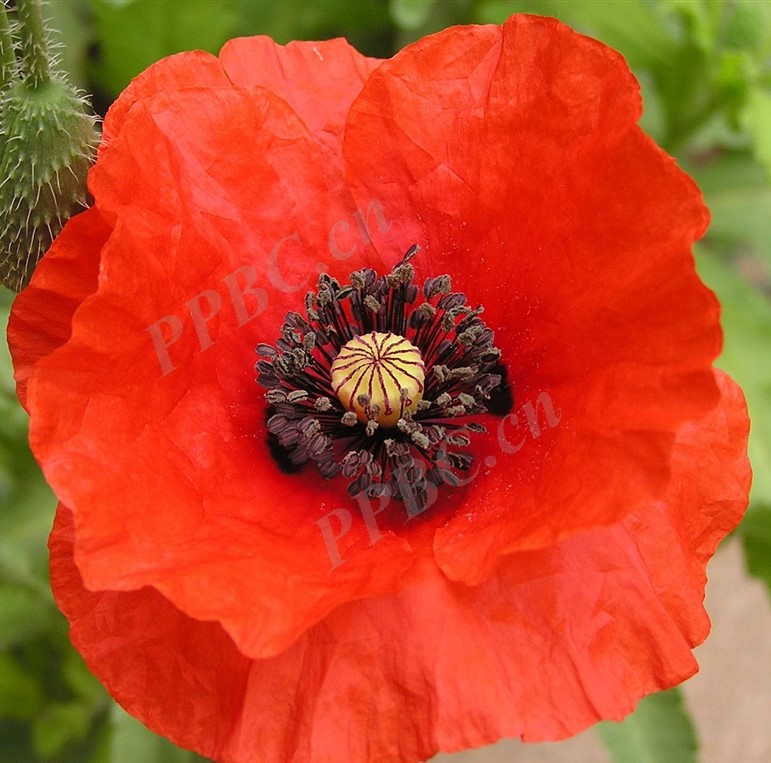Papaver rhoeas
Overview
| Genus | Papaver |
| Species | rhoeas |
| Common Name | Common poppy, corn poppy, corn rose, field poppy, Flanders poppy, and red poppy |
| Abbreviation | P. rhoeas |
| Ploidy | Diploid |
| Chromosome Number | 2n = 14 |
| Genome Size | 2550 Mb |
| Genome Assemblies | 2 |
| Cross Reference | NCBI taxon: 33128 |
Organism Image

Description
Papaver rhoeas, with common names including common poppy, corn poppy, corn rose, field poppy, Flanders poppy, and red poppy, is an annual herbaceous species of flowering plant in the poppy family Papaveraceae. It is native to north Africa and temperate Eurasia and is introduced into temperate areas on all other continents except Antarctica.
It is regarded as an agricultural weed (hence the common names including "corn" and "field"). As the plant thrives in areas of disturbed soil, it was often abundant in agricultural fields before the advent of herbicides. Flushes of poppies may still appear in fields where herbicides are not used, as well as those in fallow. The corn poppy and its cultivars such as the Shirley poppy are widely grown in gardens, and are frequently found in packets of seed labelled "wildflower mixes". Since World War I, it has been used in the Commonwealth as a symbol of remembrance for fallen soldiers.
S genes
Papaver rhoeas S genes Nucleotide
- Papaver rhoeas mRNA for papaver rhoeas pollen S (pS gene), allele 1
- Papaver rhoeas mRNA for papaver rhoeas pollen S (pS gene), allele 3
- Papaver rhoeas mRNA for papaver rhoeas pollen S (pS gene), allele 8
- Papaver rhoeas mRNA for S1 self-incompatibility protein
- Papaver rhoeas mRNA for S3 self-incompatibility protein
- Papaver rhoeas mRNA for S8 self-incompatibility protein
Papaver rhoeas S genes Protein
Downloads
The Papaver rhoeas S gene sequences are available in FASTA format.
| CDS and Protein (FASTA file) | S-gene_Papaver_rhoeas |
Publications
Yang X, Gao S, Guo L, Wang B, Jia Y, Zhou J, Che Y, Jia P, Lin J, Xu T, Sun J, Ye K. Three chromosome-scale Papaver genomes reveal punctuated patchwork evolution of the morphinan and noscapine biosynthesis pathway. Nat Commun. 2021 Oct 15;12(1):6030. doi: 10.1038/s41467-021-26330-8.